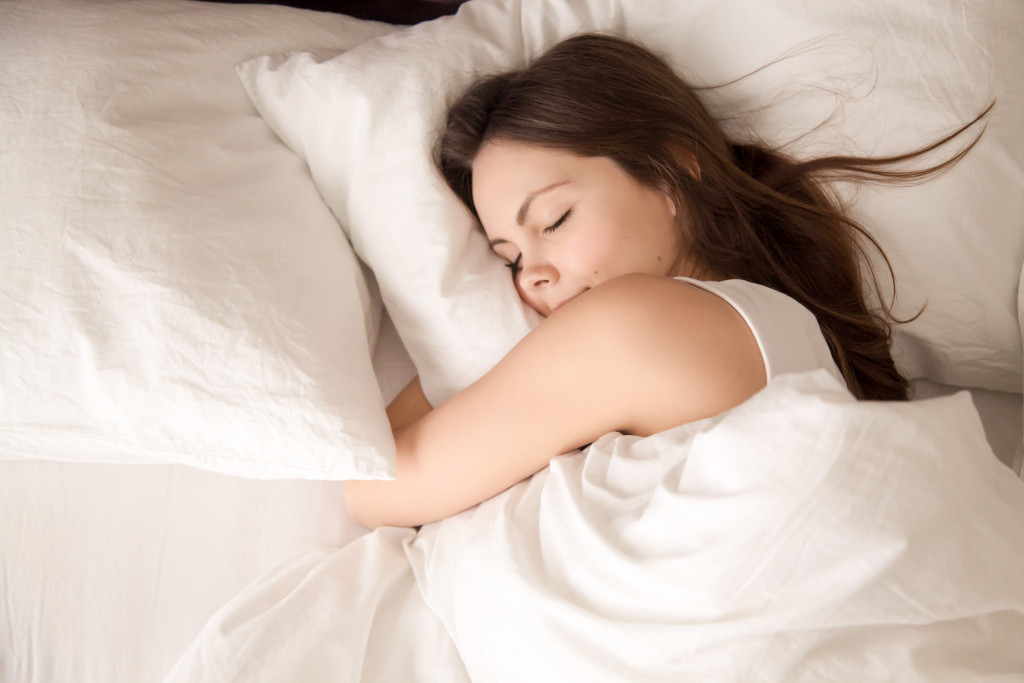Do you sweat heavily during the nighttime? Experts call this condition, expectedly, night sweats. This is a medical condition commonly associated with difficulties in sleeping and depression. For many people, it is a discomforting experience that happens with regularity.
While it’s true that night sweats occur among women who are undergoing menopause (along with hot flashes), night sweats can likewise be due to an underlying medical condition or certain medications.
For the most part, night sweats are not indicative of anything serious. However, you should know when it can cause enough concern to consult a physician about it.
Causes of Night Sweats
Of course, in moderate to high temperatures, it is typical to sweat even in the nighttime. But for some, excessive perspiration at night happen almost regularly. Millions of women undergo episodes of night sweats or hot flashes and night sweats as they enter their menopausal phase.
Likewise, night sweats can be explained by a number of medical conditions such as the following:
- Tuberculosis or HIV infections
- Cancer
- Hyperthyroidism
- Low blood sugar
- Anxiety
Treatments of cancer such as radiation therapy and chemotherapy might cause night sweats. It can also occur in men who’ve undergone testicle removal surgery as a treatment for prostate cancer.
In some cases, certain medications cause night sweats. This can include some hormone treatment medicines, antidepressants, and opioids.
Another likely cause of night sweats is the consumption of alcohol or caffeine in high levels. Drug and tobacco use are also associated with night sweats.
Treatment and Prevention of Night Sweats
In treating night sweats, a physician will first order tests that can help identify or confirm possible underlying causes. The treatment plan prescribed will be determined by the specific diagnosis after completing the confirmatory tests. Essentially, your doctor will be treating the underlying cause and not the night sweats, per se.
Below are common underlying conditions leading to night sweats that various treatment options might address:
- Infection: After an accurate diagnosis of the type of infection present, your doctor will prescribe antibiotics, antivirals, or other appropriate medications to treat the infection causing the night sweats.
- Cancer: If you’ve been diagnosed with cancer, your physician might recommend surgery, chemotherapy, other treatments such as radiation therapy, or some of these combined. Because these cancer treatment options can induce night sweats, your oncologist might give additional hormone therapy or alternative pharmacological options.
- Anxiety: Your physician can give you anti-anxiety medications like antidepressants. Often, they might also prescribe other forms of therapy.
- Hyperthyroidism: Surgery, radio-iodine therapy, or medications are typical treatment recommendations for a hyperactive thyroid gland.
- Medications: Should your doctor find that the night sweats are side effects of specific medication you are taking, they can either adjust your current dosage or prescribe an alternative medicine altogether.
- Drug Use or Alcohol/Caffeine Consumption: Reducing intake or removing such substances can alleviate night sweats. It is also possible that your physician will recommend therapy or prescribe medications to assist you in the weaning process.
- Menopause. Lifestyle changes might alleviate or mitigate the discomfort of menopause, such as night sweats, hot flashes, and other symptoms. Curtailing alcohol intake, regular exercise, and sleeping in low-temp rooms might help. If these measures are not enough to relieve symptoms, hormone therapy can help diminish hot flashes and address other symptoms. Your doctor can also advise you on how you can adjust your sleep habits. Some lifestyle changes that might address night sweats include wearing light clothing, reducing clutter from the bed such as blankets or excess pillows, using remote-controlled jet air devices (aka, bed climate control), improving ventilation, etc.
When to Seek Medical Attention for Night Sweats
As discussed, night sweats and hot flashes are expected during menopause, a natural phase for women as they reach the age of 50 or around it. Although night sweats, along with other menopausal symptoms, can manifest as early as before the age of 40, menopause might not be the cause, and you should consult with your physician for a proper diagnosis. There is a possibility that you have a condition referred to as primary ovarian insufficiency.
If you experience night sweats at a frequency that cause sleep disturbances or are accompanied by various symptoms such as cough, high fever, or sudden weight loss, it is essential to see your doctor promptly. You might have a more serious underlying condition that can be causing this barrage of symptoms.
Night sweats can cause discomfort, leading to sleep disturbances. In most cases, night sweats are not a severe concern and might be addressed by lifestyle changes. But if you have an underlying medical condition that’s remained undiagnosed, you should consult with your physician for proper diagnosis and treatment.

